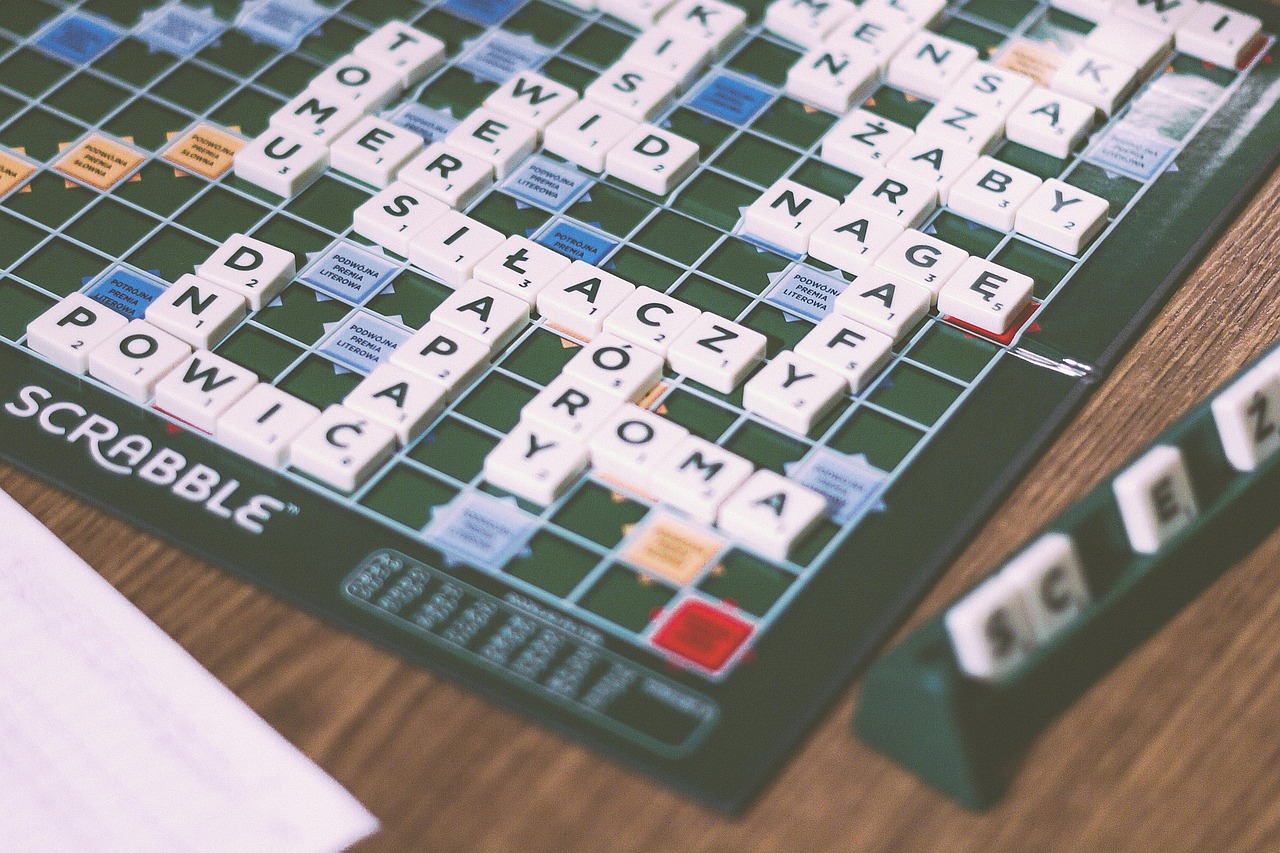
- Word games for seniors provide both mental stimulation and entertainment, helping improve memory, focus, and cognitive abilities.
- Classic games like crossword puzzles, word searches, Scrabble, and Hangman strengthen vocabulary, spelling, and problem-solving skills.
- Creative and social games, such as story cubes, Boggle, and word ladders, enhance imagination, attention to detail, and group engagement.
- Digital and online word games offer convenient, adaptive, and interactive options for seniors to practice brain-boosting exercises.
- Memory-focused word games, including matching games, word bingo, and recall challenges, help reinforce verbal memory and concentration.
- Rotating game types, incorporating personal interests, and scheduling regular sessions can maximize cognitive benefits and prevent boredom.
- Combining word games with physical activity, social engagement, and creative hobbies creates a comprehensive brain fitness routine.
Keeping the mind active is just as important as keeping the body healthy. Word games for seniors are an enjoyable way to stimulate the brain, enhance memory, and maintain focus. They can be played alone, with friends, or in group settings, offering both entertainment and cognitive benefits. In this article, we explore ten fun word games that are perfect for seniors, along with tips to maximize their benefits.
Why Are Word Games Important for Seniors?
Word games aren’t just about passing the time—they provide real mental exercise. In fact, they are some of the most effective memory care activities, helping seniors strengthen recall, focus, and problem-solving skills. Engaging in these games can:
- Improve vocabulary and language skills.
- Enhance memory and recall.
- Boost concentration and problem-solving abilities.
- Reduce the risk of cognitive decline by keeping neural pathways active.
- Offer social interaction when played in groups, which supports emotional well-being.
How Can Word Games Help Memory and Focus?
Research shows that activities involving words and language stimulate multiple areas of the brain. By challenging seniors to think critically, recognize patterns, and recall information, word games strengthen cognitive abilities. Even short daily sessions can make a noticeable difference in mental sharpness and alertness.
1. Crossword Puzzles

Crossword puzzles are timeless classics that remain popular among seniors.
Why they’re effective:
- Challenge both short-term and long-term memory.
- Improve vocabulary and comprehension.
- Encourage logical thinking and problem-solving.
Tips for seniors:
- Start with easy or medium difficulty puzzles and gradually increase the challenge.
- Use themed crosswords to make them more engaging.
- Try digital crossword apps for convenience and interactive hints.
2. Word Searches
Word searches are excellent for pattern recognition and focus.
Benefits:
- Enhance visual scanning and concentration.
- Provide a relaxing yet stimulating activity.
- Can be done solo or in a group for social interaction.
Suggestions:
- Choose word searches based on personal interests, like hobbies or travel.
- Set a timer to add a fun challenge and track progress.
- Create custom word searches for family gatherings or senior center activities.
3. Scrabble and Word Boards
Scrabble remains a favorite for those who love competitive word games.
Why seniors enjoy it:
- Boosts vocabulary and spelling skills.
- Encourages strategic thinking.
- Can be played in groups, offering social engagement.
Tips for playing:
- Use word lists or dictionaries for learning new words.
- Try Scrabble variants like “Speed Scrabble” to keep games dynamic.
- Play online versions with friends or family for convenience.
4. Hangman
Hangman is a simple game that still packs a cognitive punch.
Benefits:
- Enhances spelling and letter recognition.
- Encourages logical thinking through deduction.
- Quick and easy to set up anywhere.
How to play:
- Choose words related to topics seniors enjoy.
- Set a limit on incorrect guesses to keep the challenge reasonable.
- Turn it into a social activity with multiple players taking turns.
5. Word Ladder Games
Word ladders require players to change one letter at a time to form a new word.
Why they’re effective:
- Promote creative thinking and flexibility in problem-solving.
- Help strengthen memory as players recall word patterns.
- Offer a fun, puzzle-like experience without requiring extensive knowledge.
Tips:
- Start with simple three- or four-letter words and gradually increase difficulty.
- Play cooperatively with friends or family to encourage teamwork.
- Use printed or app-based ladders for variety.
6. Anagrams
Rearranging letters to form words is both challenging and fun.
Cognitive benefits:
- Improves pattern recognition and visual processing.
- Enhances vocabulary and spelling skills.
- Strengthens working memory and mental flexibility.
How to make it engaging:
- Use themed anagrams based on holidays, hobbies, or movies.
- Compete in friendly timed challenges with friends.
- Mix physical elements by using letter tiles or cards for tactile learning.
7. Boggle

Boggle is a fast-paced word game perfect for seniors who enjoy quick thinking.
Why it helps:
- Improves word recall under time pressure.
- Enhances attention to detail.
- Encourages social interaction when played in groups.
Playing tips:
- Use a timer to keep rounds short and engaging.
- Start with a smaller letter grid to reduce difficulty.
- Allow group discussions for collaborative word discovery.
8. Story Cubes and Word Prompts
Story cubes use pictures or words to spark creative storytelling.
Benefits for seniors:
- Enhances verbal expression and language skills.
- Boosts creativity and imagination.
- Supports memory by recalling past experiences or facts.
How to play:
- Roll cubes or draw cards and create a short story using the prompts.
- Incorporate group storytelling for shared experiences.
- Encourage writing down stories to strengthen writing skills and memory.
9. Online Word Games
The digital world offers a variety of word games designed for seniors.
Advantages:
- Easy access anytime from a computer, tablet, or smartphone.
- Adaptive difficulty levels to suit individual skill.
- Opportunities for social connection through online leaderboards or multiplayer modes.
Popular online options:
- Daily crossword apps.
- Word search generators.
- Multiplayer Scrabble and word puzzle apps.
Tips for seniors:
- Set aside dedicated time each day for digital word games.
- Use apps with large fonts and simple navigation for accessibility.
- Combine screen-based games with traditional puzzles for variety.
10. Memory Word Games
These games pair word recall with other cognitive challenges.
Examples:
- Matching words with pictures or definitions.
- Recalling lists of words after short intervals.
- Word bingo or vocabulary card games.
Benefits:
- Strengthen both verbal memory and attention span.
- Can be adapted to different cognitive levels.
- Encourage repeated practice, which is key for memory retention.
Tips for seniors:
- Keep sessions short but consistent to avoid fatigue.
- Use familiar or meaningful words to make games more relatable.
- Combine memory games with social interaction for added enjoyment.
Tips for Making Word Games More Engaging
Playing word games is more beneficial when they are enjoyable and stimulating. Consider these tips:
- Schedule regular sessions: Even 15–30 minutes a day can improve focus.
- Mix game types: Rotate between crosswords, word searches, and story games.
- Play with others: Social interaction enhances motivation and adds fun.
- Incorporate personal interests: Use themes like hobbies, movies, or travel.
- Celebrate progress: Keep track of achievements to encourage continued participation.
How to Choose the Right Word Game for Seniors
When selecting word games, consider:
- Difficulty level: Games should challenge the mind without causing frustration.
- Cognitive goals: Focus on memory, problem-solving, or verbal skills.
- Accessibility: Use large print, simple instructions, or tactile materials.
- Social vs. solo play: Decide if the game is meant for independent activity or group fun.
- Variety: Offer multiple options to prevent boredom and sustain interest.
Combining Word Games with Other Brain-Boosting Activities
Word games are just one piece of the puzzle for maintaining cognitive health. Seniors can also benefit from:
- Physical exercise to improve blood flow to the brain.
- Healthy nutrition that supports memory and focus.
- Social engagement to reduce isolation and stimulate mental activity.
- Music, art, and creative hobbies for broader brain stimulation.
By integrating word games with other activities, seniors can create a comprehensive brain fitness routine that is both fun and effective.
In a Nutshell
Word games for seniors are more than just entertainment—they are powerful tools for enhancing memory, focus, and cognitive health. From traditional crosswords to modern online games, there is a wide range of options suitable for all interests and skill levels. Regular engagement, combined with variety and social interaction, ensures that seniors can enjoy these activities while keeping their minds sharp. Whether played alone or in groups, word games provide a stimulating, rewarding, and enjoyable way to maintain mental agility well into later years.
By making word games a part of daily or weekly routines, seniors can not only enjoy fun and challenging activities but also support long-term brain health and overall well-being.

